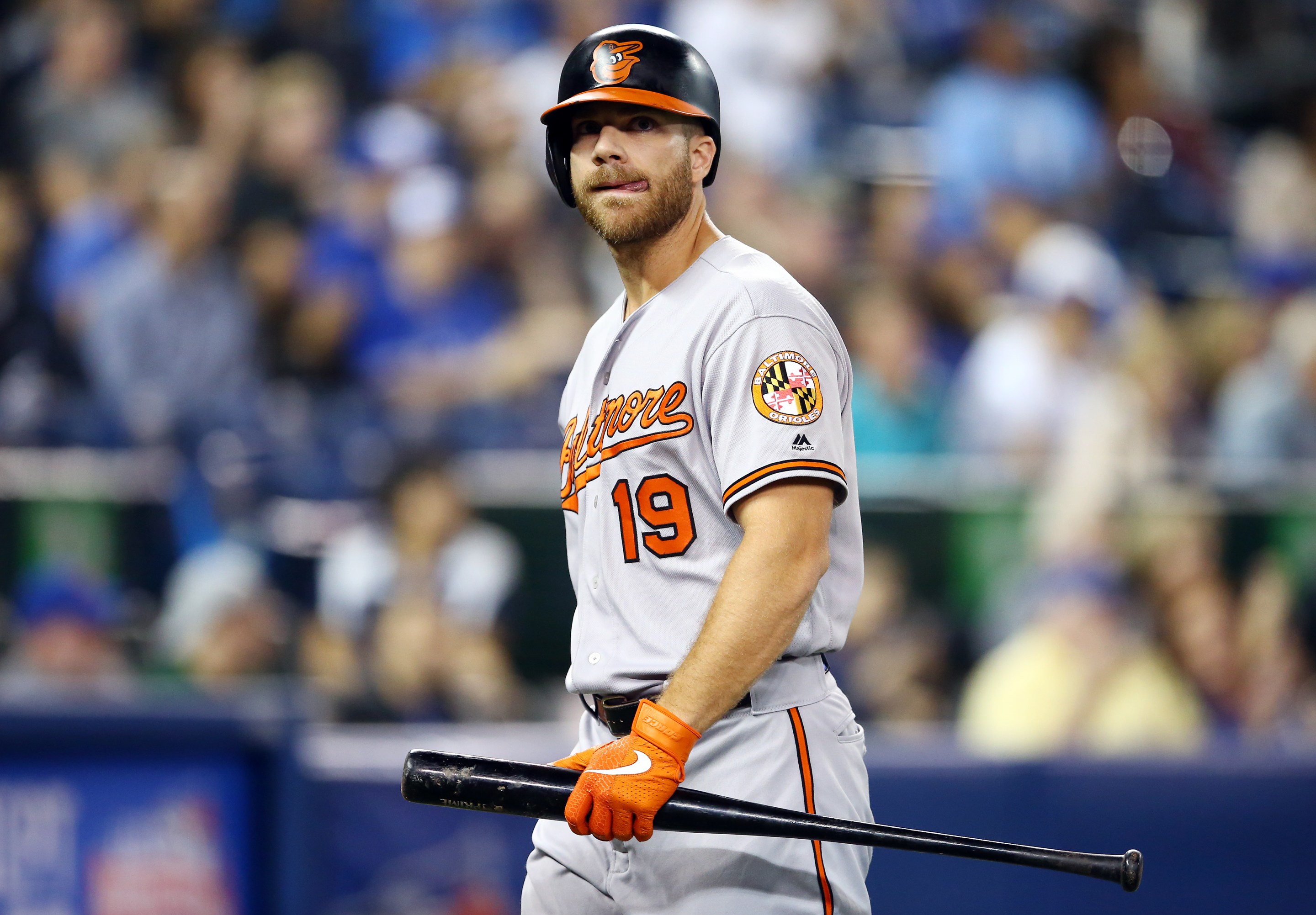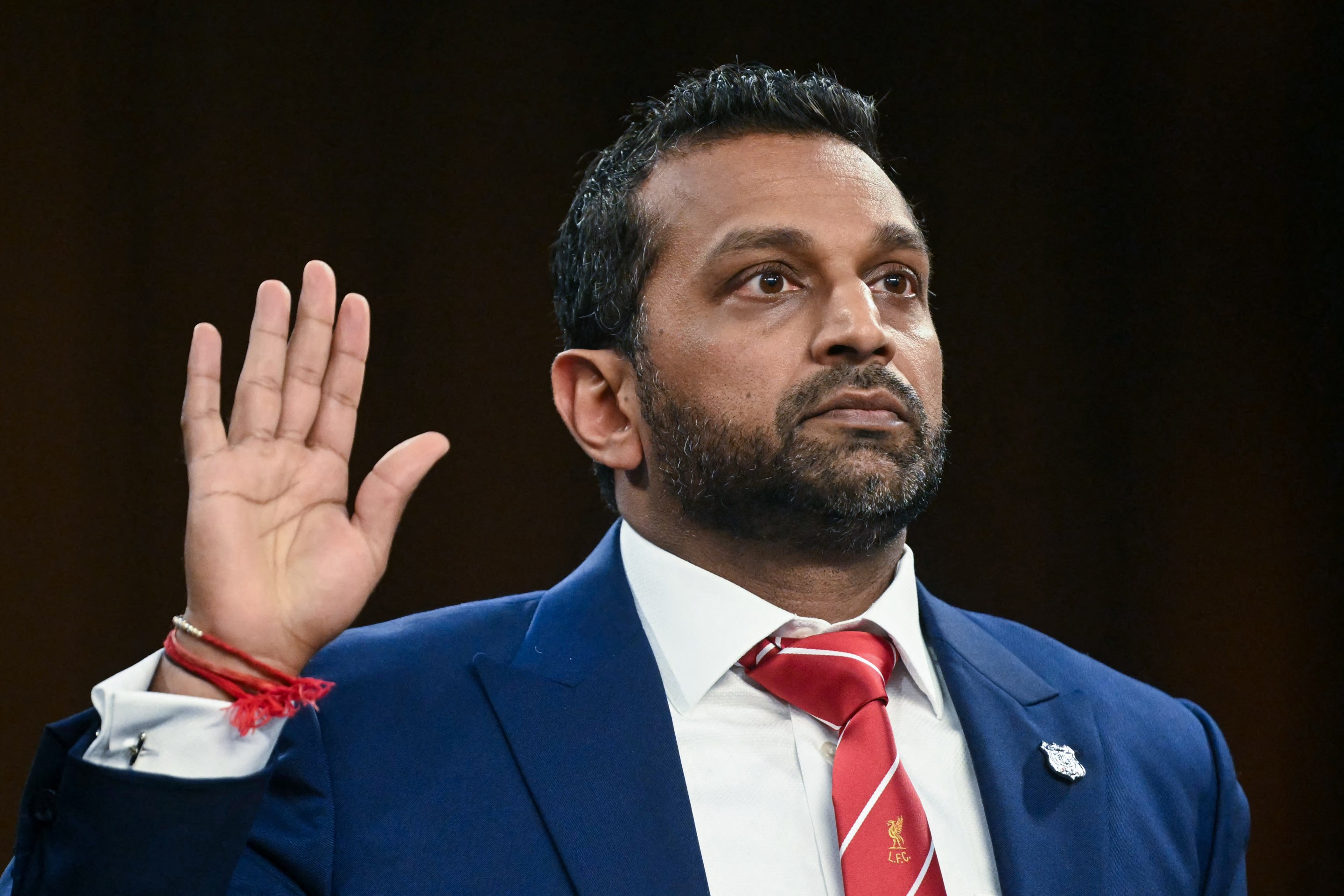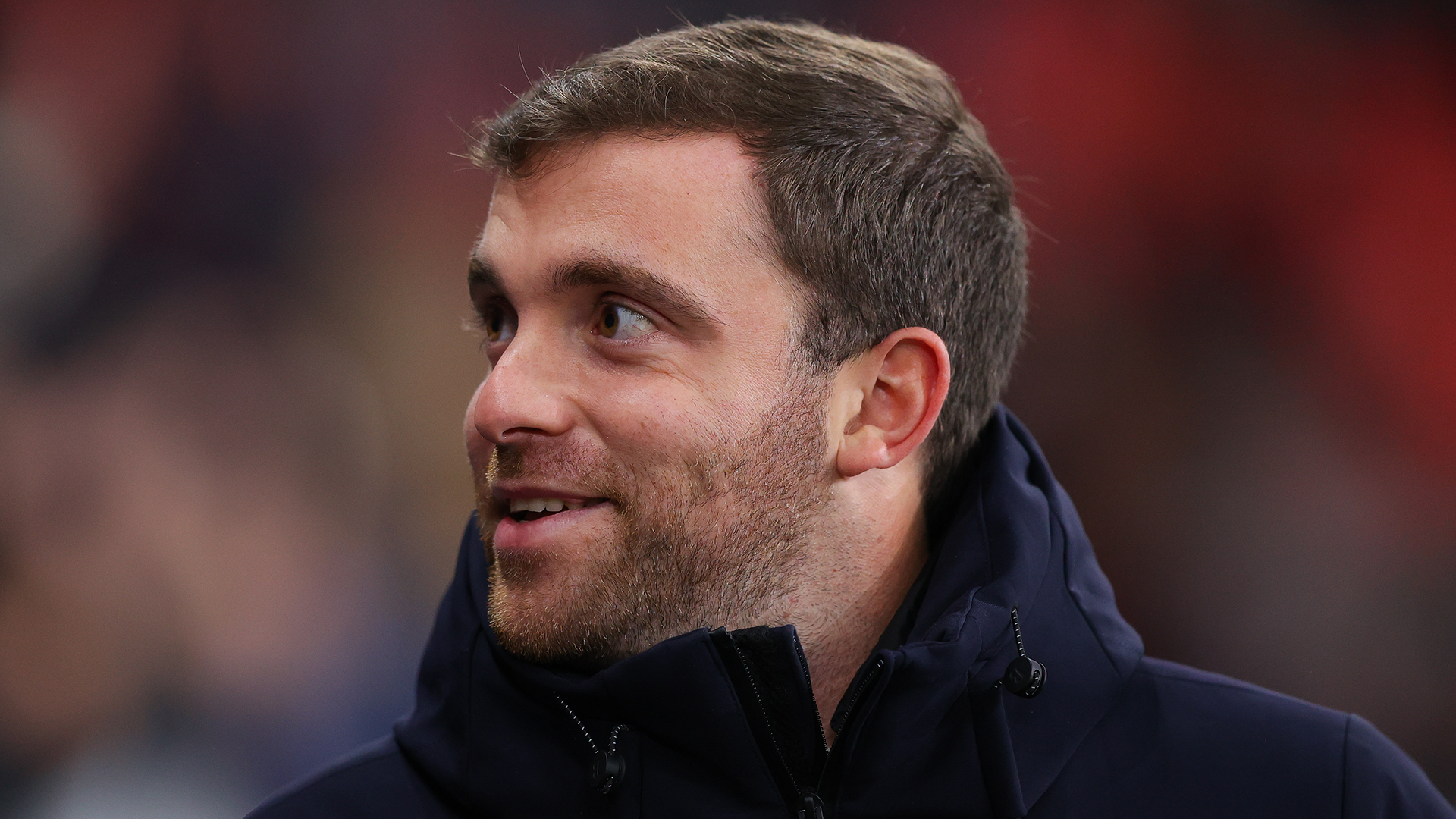Defector has partnered with Baseball Prospectus to bring you a taste of their work. They write good shit that we think you’ll like. If you do like it, we encourage you to check out their site and subscribe.
This story was originally published at Baseball Prospectus on January 14.
FEBRUARY 17, 2020
Chris Davis stands in front of his locker, talking to reporters. It’s Monday morning, the day of the team’s first full-squad workout. A new year.
“I really wanted to put some weight on and get my strength back up. I didn’t realize how far away I had kind of gotten from that … if you look at my career over the years I’ve tried hard to keep my weight down. I thought it was going to be better for my body. But it hasn’t produced any results. So, I figured I’d try something different, something that has proven to work in the past.”
Davis has never shied away from answering questions. It’s part of the job he signed up for, along with helping the younger players as they adjust to the major leagues, and participating in community outreach. He was chosen to be the leader of the Baltimore Orioles, and so he leads. He’s not sure where. He’s not going to change his stance, or his swing; he’s done all this before. It’s about the results. Too many balls dying on the warning track. Now that he’s stronger, those balls will leave the yard, which in turn will take pressure off him and allow him to swing easier. It’ll all follow from there. It’s part of the plan.
“I still think there is something left in the tank, and I think that’s really a conversation that we’re going to have to have at the end of this season.”
FEBRUARY 27, 2020
Chris Davis stands at the plate. He has not changed his stance; he is upright, his front foot open slightly in acceptance of the 0-2 count. An anonymous powder-blue-clad reliever throws an anonymous pitch, and the camera flicks upward to the powder-blue sky. The ball lands among the patio seating beyond the left field wall; among the diners a single fan reaches to the concrete to pick it up. Davis rounds the bases with his head down. He’s done all this before.
APRIL 3, 2020
Chris Davis has opinions about children’s television. “The one voice that just haunts me in my dreams is Daniel Tiger,” he says, confessing a dread for the animated Mr. Rogers spinoff shared by parents nationwide. As the players wait at home for the sport to return, he splits his time between two jobs: running his children around in a desperate attempt to tire them out, and then going back to the weights to tire himself out. Strength is the key, after all. It’s the first part of the plan.
APRIL 12, 2019
Chris Davis turns on the inside fastball and laces it into right. It’s not hit hard, but sharply, and first baseman Mitch Moreland begins trotting toward the bag, the ball well out of reach.
Ten feet beyond the dirt and twenty feet from the line, second baseman Eduardo Núñez makes a slight hop and snags it to end the game. No player in baseball has been shifted on as much as Davis, and it’s a riddle he cannot solve. He is now hitless in his last 54 at bats.
New general manager Mike Elias isn’t in his office. He’s out scouting in advance of the amateur draft. The Orioles have the number one pick, and the big question is whether they’ll go with the high school phenom Bobby Witt Jr., or the college catcher, Adley Rutschman. That he has this choice is the reason why Elias is here to make it; the year before, in the final year of former general manager Dan Duquette’s tenure, the team went 47-115 despite a $130 million payroll. He was hired to do one thing: Burn the whole thing down. Only there’s one thing that won’t burn.
“Absolutely. I’ve said before, he’s on this team and it’s no secret the fact that we have a large and long commitment to him, so our focus is going to be on getting the best performance out of him that we possibly can,” Elias told The Athletic. “Our focus is on trying different approaches, new things. I’m doing some research right now. Sig Mejdal is doing some research right now. And we’re gonna try everything and try things one variable at a time.”
APRIL 13, 2019
In the first inning, Chris Davis lines another ball to right. Again, Núñez is there. This time it is out of his reach as well. The Orioles bench goes crazy. The crowd celebrates. Davis ends up going 3-5 with a double off the wall. Was it a variable, too small for the naked eye to see?
APRIL 14, 2019
Chris Davis goes 0-4 with two strikeouts.
JANUARY 21, 2016
Chris Davis takes the jersey from general manager Dan Duquette and pulls it over his shirt and tie. The traditional symbolic gesture feels particularly symbolic in this case, since it’s the same jersey he’s worn for almost five years. “This feels familiar,” he murmurs. The seven-year, $161 million contract is easily the largest in team history, coming at the tail end of a long winter—the fact that the negotiations nearly bled into February was a big deal in those innocent times—in which Peter Angelos ultimately capitulated to agent Scott Boras.
The Orioles are balanced on the knife’s edge. Manny Machado, the team’s phenomenal and mercurial third baseman, is entering his age-24 season, set to reach free agency in two years. Machado is clearly the safer bet; he’s younger, more well-rounded, his potential still untapped. But Angelos loves Davis, loves his demeanor and his leadership and his sense of community. He makes his choice.
AUGUST 7, 2019
Manager Brandon Hyde murmurs something as he walks away in the dugout. A handful of players and coaches have to restrain Chris Davis from chasing after him.
Two days later, Davis explains the flare-up: “I hit a breaking point. It’s going to happen. It’s going to happen when you have that much frustration when you’re constantly having to deal with failure. You’re going to have episodes where you have to let it out unfortunately. It was in the dugout, I wish it hadn’t been, I wish it had been underneath. But it happened and I can’t go back and change that.”
The man has always been public and honest about his struggles, his frustrations. Every day there are losses: team losses, personal losses, debts accumulated and unpaid. When Davis got that hit on April 13, the fans cheered in part because they were tired of being owed that debt, tired of being emotional landlords. Few ballplayers have owed this much, this long. There’s no payoff, no resolution, a story with no ending.
AUGUST 9, 2019
Chris Davis returns to the lineup, pinch hitting in the seventh. He goes 0-2 with a strikeout.
JULY 26, 2020
Chris Davis takes a slow first step out of the box. It’s a deep fly ball to left center, far beyond those spring home runs into the patio chairs. This is the old Chris Davis, this is what all the weights were for. “He got it, he got it!” is the call on the broadcast. The outfielders stroll toward it more as if by gravitational pull than intention.
The ball catches the top right corner of the Monster and plummets to the track. Davis chugs into second and lifts his hands into the air at no one. It’s the closest he would get to a home run all season.
SEPTEMBER 14, 2020
After a single hitless game, Chris Davis returns to the IL. He’d spent three weeks recovering from left knee patellar tendonitis, the kind of injury he’d slimmed down to try to avoid. After fighting to reach a game under .500, the Orioles have lost five straight and starting outfielder Austin Hays is returning from his own IL stint. Manager Brandon Hyde declares that the team’s most promising prospect, the defensively wayward Ryan Mountcastle, will be taking over duties at first base.
With Davis done for the year, the natural question returns: Will he hang them up? For all the turbulence of the first two years in the franchise’s five-year plan, the Orioles are well stocked at the positions he plays. Between Renato Núñez, Anthony Santander, Cedric Mullins, Hays and Mountcastle, the roster has one clear stronghold. It’s unimaginable that he would want to put himself, put everyone through that again. After all, he’s 35. Someday, maybe soon, those flyballs won’t even reach the wall.

DECEMBER 10, 2020
Mike Bordick, former Orioles shortstop and current MASN broadcaster, joins a Baltimore sports radio station to discuss Davis. He does not pull punches.
“I think a lot of us want to see Chris Davis come out of this at some point. It’s never going to happen because of his work habits,” said Bordick. “He proved that after he left spring training because when he came back he wasn’t the same. He didn’t have the same explosive bat speed. He didn’t even have the same mental attitude. He thought he could repeat that without the repetition of the work.”
It’s a sentiment shared by many Orioles fans. Watching Chris Davis play baseball is a brutal thing, not just because of the results, but because of their predictability. The same swing, the same shifts, the same results, over and over. There is labor, too much labor, but much of it is emotional, invisible. Most fans believed Davis when he said that returning to the team was about more than the money, that he just wanted to play, to prove he still could. Why wouldn’t it be more than the money? It’s not like he needed it. But questions persisted about how he wanted to go about playing. Bordick wasn’t the only well-known former Oriole to call him out; Jim Palmer once commented: “He’s not the only guy in the major leagues who got a big contract. … You’ve got to make some adjustments. I don’t see anything.”
Davis did make adjustments at times. This isn’t even his first multi-season slump; he arrived in Baltimore after the Rangers gave up on him a decade before. He bunted against the shift a few times but the defense always seemed to make incredible plays, so he quit. A stance change did little. Whatever analytical advice that Elias and Mejdal provided had little effect. For Davis, the answer was always to believe in himself, to stay true to what made him Chris Davis. Just, do it a little harder. Be Chris Davis a little more.
DECEMBER 10, 2020
The words that Mike Elias speaks about Chris Davis are familiar: “He is under contract and there is a lot that goes into that, and we do not have plans to alter that fact. It was not a successful year for Chris on a number of fronts, and it’s a frustration for everyone involved and a tough situation for everyone involved, and that includes him. We are taking it as it comes.”
One can sense, at times, that Orioles organization is being held hostage by Davis. After all, he’s set to earn almost as much in 2021 as the rest of the roster combined; only Alex Cobb, the other remaining Angelos signing, remains on the roster, and then only until he proves himself healthy enough to play elsewhere.
This is patently untrue, of course. Davis is not forcing the team to play him, nor is he forcing them to constrain the rest of their budget. If the Orioles were freed from the responsibility of paying him, they wouldn’t immediately turn and hand it over to someone else. This is not, as Elias proved in his previous employment in Houston, how rebuilding teams work.
Chris Davis remains an Oriole because he believes he still can play. When the rebuild began, it was the primary job of Elias to help him. Now, their primary motivation is perhaps not so noble; it’s more of a siege. Their hope is that Davis will retire willingly, abandoning the $42 million still owed him. Or, failing that, a work stoppage or two that will alleviate some of the team’s debt to him. The possibility of that is worth more to the organization than the playing time he takes from some other developing player. While it’s difficult to blame the Orioles for giving up on Mike Yastrzemski, a 28-year-old Quad-A type, he’s exactly the sort of player a 115-loss team should be trying out. If they’re willing to make room.
Meanwhile, for the second straight season, the team traded its best hitter—last year, Jonathan Villar, this time José Iglesias—for sub-market rates, rather than pay their 2021 salaries. They went on to release two more starters in 27-year-old Hanser Alberto and 26-year-old Renato Núñez. “Part of our job,” Elias explained regarding Alberto, “is to operate under the economic framework of the collective bargaining agreement and the rules that are in place.” The pair were estimated to receive around $4.5 million combined in arbitration. The Orioles clearly weren’t willing to go over $3.9 million.
DECEMBER 10, 2020
Chris Davis sits at a desk in his home office, a handful of photographs, a cross, and a camo-colored Orioles hat behind him in frame. Yet again he’s somehow an everyman, just trying to get through one more Zoom meeting. It isn’t quite a new year yet, but then, it never is.
As always, he’s not afraid to share his feelings when asked. “The tough thing about being an older player is, sometimes the moves that are made are going to affect the team in a more positive way when you’re not on the team,” Davis commented on the rebuild. “I know Mike [Elias] and Sig [Mejdal] and [Brandon] Hyde have a good idea of what they are trying to accomplish, but sometimes it doesn’t look like you think it would.”
It might seem as though Davis is in no place to comment on the future of the Orioles, given how clearly he isn’t a part of them. But he does still represent his teammates, and when the subject is the loss of Iglesias, Alberto and Núñez, it’s not an unfair question; the revolution has already begun to eat its arbitration-eligible young. It’s just an unwanted one, coming from him.
“My desire to play has nothing to do with the amount of money that I’m owed or the amount of money that I’m gonna make. … I still feel like there’s something that I have left to give. And, to be honest with you, I don’t really want my career to end on the note that it’s on right now. I don’t want it to end the way things have gone the last few years for me. I think there’s more of a story to be told.”
FEBRUARY 17, 2021
Chris Davis stands in front of his locker. “I still think there is something left in the tank,” he begins. This is all part of the plan, his and theirs, and he’ll continue to tell his story, because the Orioles can’t afford to close the book.






